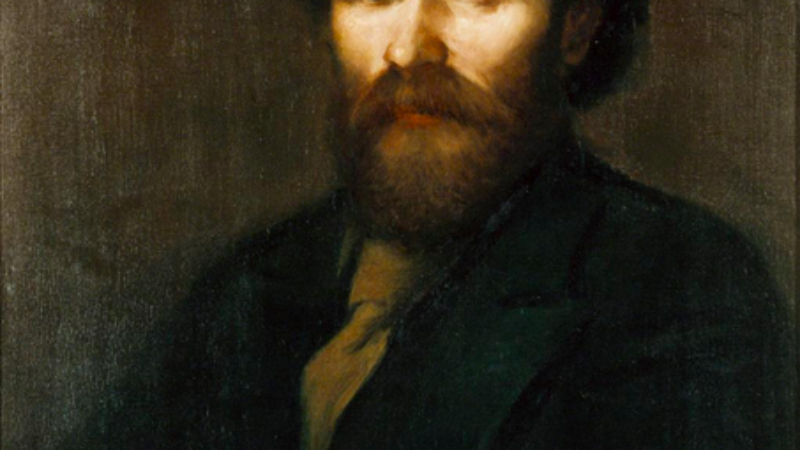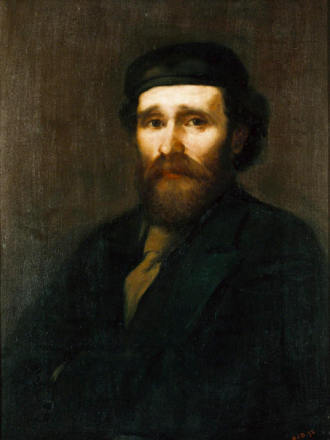
To commemorate the 100th anniversary of the passing of Labour’s first leader Keir Hardie today, LabourList is publishing a series of Hardie’s writings, introduced by Blair McDougall.

When Hardie was blacklisted by mine owners they created in place of Hardie the Miner a tireless trade union organiser and campaigning journalist. He helped organise a series of failed strikes and the bitterness of the experience, and the timidity of the Liberal establishment, made him realise that an industrial strategy wasn’t enough. The miners needed a political voice in Parliament. He spoke to two open air meetings in Ayrshire, at the end of which a motion was agreed. “In the opinion of this meeting, the time has come for the formation of a Labour Party in the House of Commons.” Soon after this there was a by-election in Lanarkshire. Hardie lost but had establish the principle of a working class candidate seeking to represent working class voters. Both Hardie’s speech and his election address are below.
First Speech as a Politician 1887 Irvine Moor
The Liberals and Conservatives have, through their organisations, selected candidates. They are both, as far as I know, good men. The point I wish to emphasise, however, is this: that these men have been selected without the mass of the people being consulted. Your betters have chosen the men, and they now send them down to you to have them returned.
What would you think if the Miners’ Executive Council were to meet in Kilmarnock and appoint a secretary to the miners of Ayrshire in that way? Your candidate ought to be selected by the voice and vote of the mass of the people.
We are told that Sir William Wedderburn is a good Radical and that he is sound on the Liberal programme. It may be all true, but we do not know whether it is or not. Will he, for example, support an Eight Hour Bill? Nobody has asked him, and nobody cares except ourselves. Will he support the abolition of private property in royalties? Well, he is a landlord and not likely to be too extreme in that respect. Is he prepared to establish a wage court that would secure to the workman a just reward for his labour? Nobody knows whether he is or not. Is he prepared to support the extension of the Employers’ Liability Act, which presently limits the compensation for loss of life, however culpable the employers may be, to three years’ wages? Nobody knows.
I am not surprised at the action of the Liberal Association in opposing me. This is what has been done in nearly every case where a Labour candidate has been brought forward. I have been asked what course I intend to take, and my reply is, the same as formerly. I will endeavour to have a Labour Electoral Association formed in every town and village in the constituency. When the time comes for an election I will judge how far circumstances justify me in going forward. If the working men are true to themselves, I will insist on a plebiscite being taken between myself and the Liberal candidate, and then let the man who gets most support go to the poll. If the Liberal Association refuses to take this course, working men will then see how much their professions of friendship are worth.
I am not specially anxious to go to Parliament, but I am anxious and determined that the wants and wishes of the working classes shall be made known and attended to there. Meantime, I recommend my friends not to pledge themselves to either of the candidates now before them till they see what the future may bring forth.
Election Address for the 1888 Mid Lanark By Election
Hardie’s election address began by listing the numbers of landlords, lawyers, ship-owners, etc that were represented in the House of Commons, then continued:
You will see that the working men of Scotland have no representatives to urge their claims. It is in order to remedy this admitted grievance that I now claim your support…
In addition to this, I know intimately the needs of the working classes, and would agitate for every reform likely to promote their welfare. I hold my principles not as ‘pious opinions’ – good enough for believing in but not for acting on – but as principles worth fighting for.
Herein lies the chied distinction between myself and the other gentlemen whose names are now before you. They would follow their leaders, right or wrong; I, on the other hand, would press upon them the claims of the people.
You are now in the position of mean called upon to decide your own fate. Your lot in life hitherto has been hard and bitter. The commercial classes are now feeling the effects of the poverty which has been yours so long. Why is it that in the richest nation in the world those who produce the wealth alone should be poor? What help can you expect from those who believe they can only be kept rich in proportion as you are kept poor?
‘Few save the poor, feel for the poor, the rich no not how hard
It is to be of needful food and needful rest debarred.’
I ask you therefor to return to Parliament a man of yourselves who being poor can feel for the poor, and whose whole interest lies in the direction of securing for you a better and a happier lot. You have the power to return whom you will to Parliament, I only ask you to use that power as a means of securing justice to yourselves by which you will do injustice to no man.
Respectfully yours, J. Kier Hardie.




More from LabourList
Government announce SEND reform in schools white paper
SPONSORED: ‘Industrial hemp and the challenge of turning Labour’s priorities into practice’
‘A day is a long time in politics, so we need ‘action this day’’